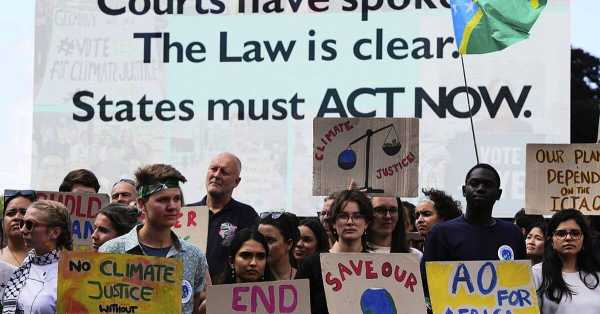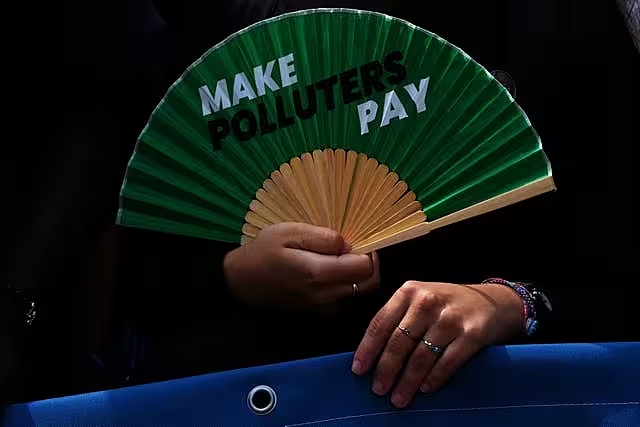
The UN's top court has ruled that states may be violating international law if they fail to take steps to protect the planet from climate change, and that countries affected by the impacts may be entitled to compensation.
Environmentalists have quickly welcomed a landmark advisory opinion from the International Court of Justice (ICJ) on countries' obligations to combat climate change and the consequences they could face if they do nothing.
“A state's failure to take necessary measures to protect the climate system… may be considered an international violation,” court president Yuji Iwasawa said during the hearing.
He described the climate crisis as “an existential problem of global proportions that threatens all forms of life and the health of our planet.”
The non-binding opinion, which runs more than 500 pages, was hailed as a landmark moment in international climate law.
Notably, the court noted that a “clean, healthy and sustainable environment” is a human right. This opens the door to other legal action, including countries taking each other to the International Court of Justice to hold each other accountable, as well as domestic lawsuits and legal tools such as investment treaties.
The initiative was initiated by the Pacific island nation of Vanuatu, which received support from more than 130 countries.
Parties to the court include all UN member states, including key greenhouse gas emitters such as the United States and China.
Environmental activists gathered outside the packed courthouse with a sign: “The courts have spoken. The law is clear. States must act now.”
They watched the court's decision on a large screen, clapping and shouting cheers at times throughout the two-hour session. When the hearing ended, others left the courtroom laughing and hugging.
“Today, the situation has changed. The world’s highest court has given us a powerful new tool to protect people from the devastating effects of the climate crisis and to ensure justice for the damage that emissions have already caused,” said former UN High Commissioner for Human Rights Mary Robinson.
“The ICJ ruling brings us closer to a world where governments can no longer ignore their legal obligations. It reaffirms the simple truth of climate justice: those who have contributed least to this crisis deserve protection, reparations, and a future,” said Vishal Prasad, director of Pacific Island Students Against Climate Change.

After many years forehead
Sourse: breakingnews.ie






